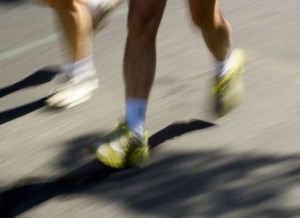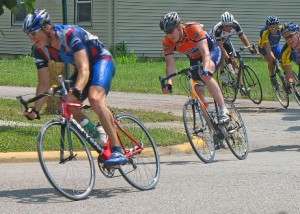By Barbara Ficarra, RN, BSN, MPA
Part II (Running and Biking)
My recent post, “Swim, Bike, Run–Simple Tips for the Triathlete Beginner” Part I, focused on the swimming part of a triathlon. Triathlon swimming expert Kevin Koskella shared simple tips for swimming in open waters.
Part II of the post focuses on the running and biking aspect of a triathlon.
Coach Jeff Kline has been training beginner triathletes for over 20 years. Coach Jeff likes to emphasize most to triathletes who are beginners is to keep it simple and keep it fun.
“Don’t over train for your first time out of the box. Look for a coach or training plan that makes it about you, the individual. Then train to your personal fitness ability. Most importantly, keep it fun. Find a partner or challenge yourself by riding and running different courses. Triathlon is a great sport and the community of people involved from fellow racers to volunteers is the best. Make your first experience fun enjoy the entire day.”
Running and biking tips for the beginner from our triathlon expert Jeff Kline
Running tips
- Start out working at your personal fitness level.
- Easy slow runs and even slow run/walks until you build up the endurance you need to run your entire race.
- Running is about good form; nice light feet, minimize the pounding and jarring on your joints and muscles. Then once a week practice running at a pace that is faster and more difficult in short intervals – 4 minutes on, 2 minutes off about 4-5 times. This will help keep you strong throughout your run.
- Running can be fun if you stay relaxed and train with consistency.
Biking tips
- The beginner should start riding easy at about 40 minutes and build on that. Two to three rides a week. One ride should always be focused on handling skills. Most beginner triathlon courses are flat to rolling hills and don’t require a lot of technical biking skills.
- Get comfortable on the bike. Work on handling drills so you don’t have any issues riding on the roads.
- Practice good form, a nice high cadence rather than pushing hard gears makes biking easier and more efficient.
- When you’re comfortable do short hard intervals to increase your speed and strength on the bike.
Once you decide to make the commitment to train for a triathlon, we hope these simple triathlon tips help. We wish you the best of luck and have fun.
Just for fun
Looking for a mobile device to help track you?
In an email to Peter Shankman, founder of Help A Reporter Out, (HARO) an avid athlete who completed 13 marathons, two Olympic distance triathlons, and one half-Ironman, currently training for his first Ironman, in Cozumel, Mexico, in November, 2010 and a “B” licensed skydiver, specializing in free-flying, I asked him if there are any mobile devices he uses when he trains. He replied that he uses trackmyathlete.com, and it’s the “best thing ever,” he said. He recently used it, and he loves the GPS real time athlete tracking because “my parents can watch my progress and don’t worry that I’ve dropped dead on the course somewhere.”
There you have it, simple tips for the beginner triathlete from our experts and Peter Shankman’s love for a device that will keep him in sight.
CNN’s Fit Nation Triathlon Challenge
Good luck to all those triathletes who will be taking part in CNN’s Fit Nation Triathlon Challenge on July 18, 2010 in New York City.
For more than six months contestants have been training for the Nautica New York City Triathlon with Dr. Sanjay Gupta, CNN’s Chief Medical Correspondent. Linda Fisher-Lewis, a Healthin30 reader was chosen as one of the contestants to train.
We wish all the triathletes the best of luck.
—
About Jeff Kline
Coach Jeff has been an elite athlete and involved in coaching for over twenty years. He has a BS Degree in Health Sciences, and is certified by The National Endurance Standards Association. He has written and presented papers to the nursing council on physiology and anatomy as well bone and muscle development. Coach Jeff uses his education and experience to help all clients meet their lifestyle related goals. Clients utilizing his personal guidance have reached many levels of success that range from personal best in local races to top finishes in major marathons and triathlons.
Jeff believes that listening to his clients and developing a program that best fits their individual needs and daily schedule is the framework that helps all his athletes achieve their goals. He also believes that the continuing education of each staff member is paramount to keeping up with our ever-changing industry.
You’ll find more great triathlon training tips here.
You can follow Coach Jeff on Twitter.
You can follow Barbara Ficarra on Twitter.
—
(The content on this website and related broadcasts is for informational purposes only and is not a substitute for medical advice or treatment for any medical condition. Promptly seek professional medical care if you have any concern about your health. Always consult your physician before making any changes to your medical regimen.)


